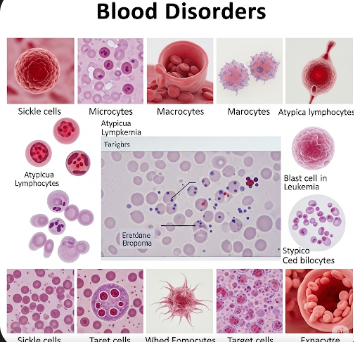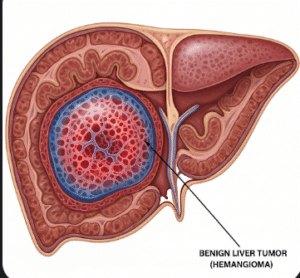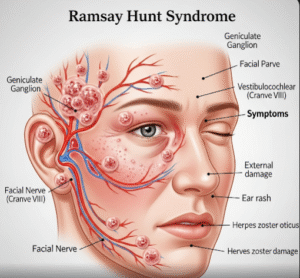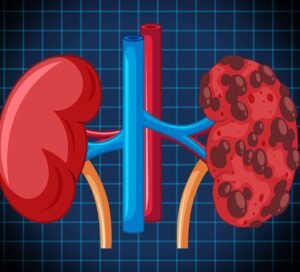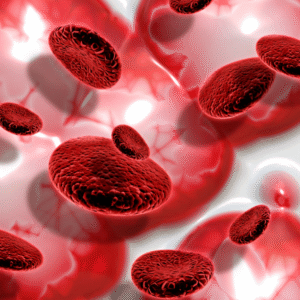Overview
Blood disorders encompass a wide range of conditions affecting the composition, function, or production of blood cells and clotting factors. These disorders can impact red blood cells, white blood cells, platelets, or plasma proteins, leading to symptoms ranging from mild fatigue to life-threatening complications.
In Korea, patients benefit from advanced hematology services, state-of-the-art diagnostic laboratories, and specialized treatments, including blood transfusions, bone marrow transplants, and targeted therapies. Early detection and intervention are key to managing blood disorders effectively and preventing serious complications.
What is Blood Disorder?
A blood disorder refers to any abnormality in blood composition or function. Blood disorders are broadly classified as:
- Anemias: Reduced red blood cell count or hemoglobin, causing fatigue and weakness
- Leukemias: Malignancies of white blood cells
- Bleeding disorders: Impaired clotting due to platelet or clotting factor deficiencies
- Myeloproliferative disorders: Overproduction of one or more blood cell types
- Inherited blood disorders: Genetic conditions like sickle cell disease, thalassemia, or hemophilia
These disorders may be acute or chronic, congenital or acquired, and mild or severe, depending on the underlying cause.
Symptoms
Symptoms of blood disorders vary based on the type and severity:
Anemia-related:
- Fatigue and weakness
- Shortness of breath
- Pale skin or mucous membranes
- Dizziness or fainting
- Rapid heartbeat
White blood cell disorders:
- Frequent or severe infections
- Fever and night sweats
- Unexplained weight loss
- Swollen lymph nodes
Platelet or clotting disorders:
- Easy bruising or bleeding
- Nosebleeds or gum bleeding
- Heavy menstrual bleeding in women
- Blood in urine or stool
General symptoms:
- Persistent fatigue
- Bone pain (in leukemia or myeloproliferative disorders)
- Swelling or enlargement of the spleen or liver
Causes
Blood disorders may arise from various genetic, environmental, or medical factors:
Genetic causes:
- Inherited conditions such as sickle cell disease, thalassemia, hemophilia, or von Willebrand disease
Acquired causes:
- Nutritional deficiencies: Lack of iron, vitamin B12, or folate
- Chronic diseases: Kidney disease, liver disease, or autoimmune disorders
- Bone marrow disorders: Aplastic anemia or myelodysplastic syndromes
- Cancer: Leukemia, lymphoma, or multiple myeloma
- Infections: Certain viral or bacterial infections affecting blood production
- Medications: Chemotherapy, anticoagulants, or certain antibiotics affecting blood counts
Risk Factors
- Family history: Genetic predisposition to blood disorders
- Age: Risk increases with age, especially for leukemia or myelodysplastic syndromes
- Chronic illness: Autoimmune diseases, kidney, or liver disorders
- Exposure to toxins: Radiation, chemicals, or certain medications
- Poor nutrition: Deficiencies in iron, vitamin B12, or folate
- Immune system compromise: Increased susceptibility to infections affecting blood cells
Complications
Untreated or poorly managed blood disorders can result in:
- Severe anemia: Leading to organ dysfunction or heart complications
- Excessive bleeding: Risk of hemorrhage from clotting disorders
- Frequent infections: Due to low white blood cell counts
- Bone marrow failure: Impairing the body’s ability to produce blood cells
- Organ damage: Liver, spleen, or kidney complications from chronic blood disorders
- Progression to cancer: Certain disorders may evolve into leukemia or lymphoma
- Reduced quality of life: Chronic fatigue, weakness, or hospitalization
Prevention
While some blood disorders are genetic and unavoidable, preventive strategies focus on lifestyle, nutrition, and early detection:
- Balanced diet: Adequate iron, vitamin B12, and folate intake
- Regular health screenings: Early detection of anemia, clotting issues, or blood cell abnormalities
- Avoid exposure to toxins: Chemicals, radiation, or harmful medications
- Vaccinations: Protect against infections that may impact blood health
- Monitoring chronic illnesses: Proper management of kidney, liver, or autoimmune conditions
- Genetic counseling: For families with known hereditary blood disorders
Treatment Options in Korea
Diagnosis
Korean medical centers utilize advanced hematology diagnostics:
- Complete blood count (CBC): Measures red cells, white cells, and platelets
- Peripheral blood smear: Examines blood cell morphology
- Bone marrow biopsy: Evaluates production and maturation of blood cells
- Coagulation tests: Assess clotting factor function
- Genetic testing: Identifies inherited blood disorders
- Imaging studies: Ultrasound, CT, or MRI for organ involvement
Medical Management
- Medications: Iron, vitamin B12, folate supplements, or immunosuppressants for autoimmune conditions
- Blood transfusions: Correct severe anemia or platelet deficiency
- Anticoagulants or clotting factor replacement: For bleeding disorders or clot prevention
- Chemotherapy or targeted therapy: For blood cancers such as leukemia, lymphoma, or myeloma
Surgical and Procedural Management
- Bone marrow or stem cell transplantation: For severe anemia, leukemia, or aplastic anemia
- Splenectomy: In cases of hypersplenism causing low blood counts
Supportive Care
- Regular monitoring of blood counts and organ function
- Nutritional counseling and supplementation
- Psychological support for chronic or life-threatening conditions
- Education on avoiding infection and managing bleeding risks
Prognosis
The prognosis of blood disorders in Korea depends on type, severity, and timely treatment:
- Mild anemia or nutritional deficiencies respond well to supplements and dietary management
- Chronic or genetic disorders require long-term care but can be managed effectively with modern therapies
- Blood cancers or severe bone marrow failure carry higher risks but outcomes have improved significantly due to advanced hematology care, stem cell transplantation, and targeted medications
- With early detection and proper management, patients can maintain good quality of life and functional independence

